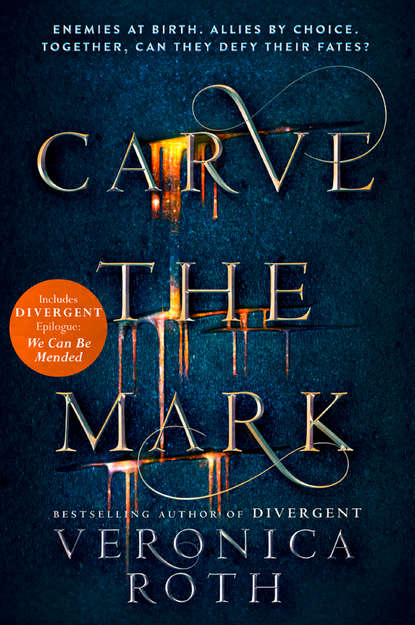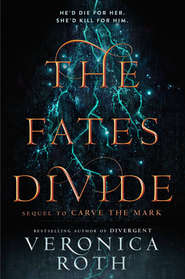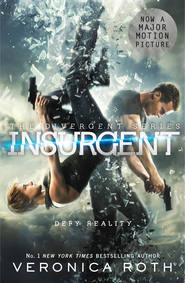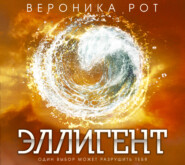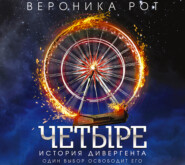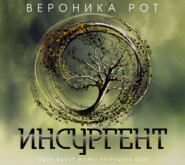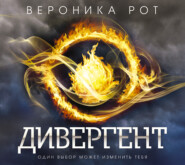По всем вопросам обращайтесь на: info@litportal.ru
(©) 2003-2025.
✖
Carve the Mark
Настройки чтения
Размер шрифта
Высота строк
Поля
“Tell me,” my father said. I pushed my ear to the wall to better hear him. “Tell me exactly what you told him.”
“I—I thought …” Ryz’s voice wobbled like he was on the verge of tears. That wasn’t good, either. My father hated tears. “I thought, because he is training to be my steward, that he would be trustworthy—”
“Tell me what you told him!”
“I told him … I told him that my fate, as declared by the oracles, was—was to fall to the family Benesit. That they are one of the two Thuvhesit families. That’s all.”
I pulled away from the wall. A cobweb caught on my ear. I hadn’t heard Ryzek’s fate before. I knew my parents had shared it with him when most fated children found out their fates: when they developed a currentgift. I would find out my own in a handful of seasons. But to know Ryzek’s—to know that Ryzek’s was to fall to the family Benesit, which had kept itself hidden for so many seasons we didn’t even know their aliases or their planet of residence—was a rare gift. Or a burden.
“Imbecile. That’s ‘all’?” my father said, scornful. “You think that you can afford trust, with a coward fate like yours? You must keep it hidden! Or else perish under your own weakness!”
“I’m sorry.” Ryz cleared his throat. “I won’t forget. I will never do it again.”
“You are correct. You will not.” My father’s voice was deeper now, and flat. That was almost worse than yelling. “We will just have to work harder to find a way out of it, won’t we? Of the hundreds of futures that exist, we will find the one in which you are not a waste of time. And in the meantime, you will work hard to appear as strong as possible, even to your closest associates. Understand?”
“Yes, sir.”
“Good.”
I stayed crouched there, listening to their muffled voices, until the dust in the tunnel made me want to sneeze. I wondered about my fate, if it would raise me up to power or cut me down. But now it felt more frightening than before. All my father wanted was to conquer Thuvhe, and Ryzek was destined to failure, fated to let my father down.
Dangerous, to anger my father with something you could not change.
I ached for Ryz, there in the tunnel, as I fumbled my way back to my bedroom. I ached, before I knew better.
(#ulink_47adf707-d780-5c70-ae6d-716fe9b2cba8)
A SEASON LATER, WHEN I was eight, my brother barged into my bedroom, breathless and soaked through with rain. I had just finished setting up the last of my figurines on the carpet in front of my bed. They were scavenged from the sojourn to Othyr the year before, where they had a fondness for small, useless objects. He knocked some of them over when he marched across the room. I cried out in protest—he had ruined the army formation.
“Cyra,” he said, crouching beside me. He was eighteen seasons old, his arms and legs too long, with spots on his forehead, but terror made him look younger. I put my hand on his shoulder.
“What is it?” I asked, squeezing.
“Has Father ever brought you somewhere just to … show you something?”
“No.” Lazmet Noavek never took me anywhere; he barely looked at me when we were in the same room together. It didn’t bother me. Even then, I knew that being the target of Father’s gaze was not a good thing. “Never.”
“That’s not exactly fair, is it?” Ryz said eagerly. “You and I are both his children, we ought to be treated the same. Don’t you think?”
“I … I suppose,” I said. “Ryz, what is—”
But Ryz just placed his palm on my cheek.
My bedroom, with its rich blue curtains and dark wood paneling, disappeared.
“Today, Ryzek,” my father’s voice said, “you will give the order.”
I was in a small dark room, with stone walls and a huge window in front of me. My father stood at my left shoulder, but he seemed smaller than he usually was—I only came up to his chest in reality, but in that room I stared right at his face. My hands were clenched in front of me. My fingers were long and thin.
“You want …” My breaths came shallow and fast. “You want me to …”
“Get yourself together,” my father growled, grabbing the front of my armor and jerking me toward the window.
Through it I saw an older man, creased and gray haired. He was gaunt and dead in the eyes, with his hands cuffed together. At Father’s nod, the guards in the next room approached the prisoner. One of them held his shoulders to keep him still, and the other wrapped a cord around his throat, knotting it tightly at the back of his head. The prisoner didn’t put up any protest; his limbs seemed heavier than they were supposed to be, like he had lead for blood.
I shuddered, and kept shuddering.
“This man is a traitor,” my father said. “He conspires against our family. He spreads lies about us stealing foreign aid from the hungry and the sick of Shotet. People who speak ill of our family can’t simply be killed—they have to be killed slowly. And you have to be ready to order it. You must even be ready to do it yourself, though that lesson will come later.”
Dread coiled in my stomach like a worm.
My father made a frustrated noise in the back of his throat, and shoved something into my hand. It was a vial sealed with wax.
“If you can’t calm yourself down, this will do it for you,” he said. “But one way or another, you will do as I say.”
I fumbled for the edge of the wax, peeled it off, and poured the vial’s contents into my mouth. The calming tonic burned my throat, but it took only moments for my heartbeat to slow and the edges of my panic to soften.
I nodded to my father, who flipped the switch for the amplifiers in the next room. It took me a moment to find the words in the haze that had filled my mind.
“Execute him,” I said, in an unfamiliar voice.
One of the guards stepped back and pulled on the end of the cord, which ran through a metal loop in the ceiling like a thread through the eye of a needle. He pulled until the prisoner’s toes just barely brushed the floor. I watched as the man’s face turned red, then purple. He thrashed. I wanted to look away, but I couldn’t.
“Not everything that is effective must be done in public,” Father said casually as he flipped the switch to turn the amplifiers off again. “The guards will whisper of what you are willing to do to those who speak out against you, and the ones they whisper to will whisper also, and then your strength and power will be known all throughout Shotet.”
A scream was building inside me, and I held it in my throat like a piece of food that was too big to swallow.
The small dark room faded.
I stood on a bright street teeming with people. I was at my mother’s hip, my arm wrapped around her leg. Dust rose into the air around us—in the capital city of the nation-planet Zold, the dully named Zoldia City, which we had visited on my first sojourn, everything was coated in a fine layer of gray dust at that time of year. It came not from rock or earth, as I had assumed, but from a vast field of flowers that grew east of here and disintegrated in the strong seasonal wind.
I knew this place, this moment. It was one of my favorite memories of my mother and me.
My mother bent her head to the man who had met her in the street, her hand skimming my hair.
“Thank you, Your Grace, for hosting our scavenge so graciously,” my mother said to him. “I will do my best to ensure that we take only what you no longer need.”
“I would appreciate that. There were reports during the last scavenge of Shotet soldiers looting. Hospitals, no less,” the man responded gruffly. His skin was bright with the dust, and almost seemed to sparkle in the sunlight. I stared up at him with wonder. He wore a long gray robe, almost like he wanted to resemble a statue.
“The conduct of those soldiers was appalling, and punished severely,” my mother said firmly. She turned to me. “Cyra, my dear, this is the leader of the capital city of Zold. Your Grace, this is my daughter, Cyra.”
“I like your dust,” I said. “Does it get in your eyes?”
The man seemed to soften a little as he replied, “Constantly. When we are not hosting visitors, we wear goggles.”
He took a pair from his pocket and offered them to me. They were big, with pale green glass for lenses. I tried them on, and they dropped straight from my face to my neck, so I had to hold them up with one hand. My mother laughed—light, easy—and the man joined in.
“We will do our best to honor your tradition,” the man said to my mother. “Though I confess we do not understand it.”





